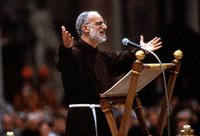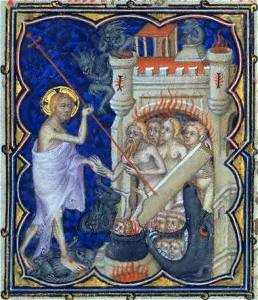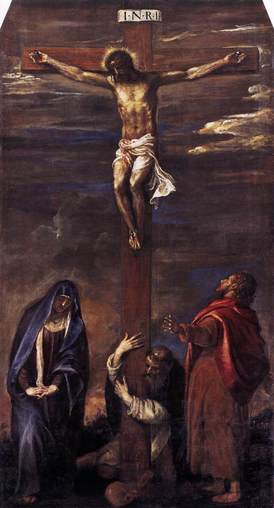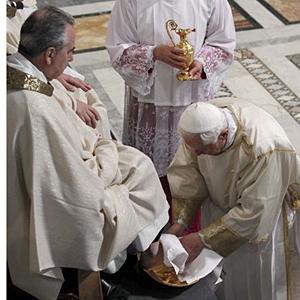Some say that on Holy Saturday Jesus went to hell in triumph, to free the souls long imprisoned there. Others say he descended into a death deeper than death, to embrace in his love even the damned. We do not know. Scripture, tradition and pious writings provide hints and speculations, but about this most silent day it is perhaps best to observe the silence. One day I expect he will tell us all about it. When we are able to understand what we cannot now even understand why we cannot understand. Meanwhile, if we keep very still, there steals upon the silence a song of Easter that was always there. On the long mourners' bench of the eternal pity, we raise our heads, blink away our tears and exchange looks that dare to question, 'Could it be?' But of course. That is what it was about. That is what it is all about. O felix culpa!
O happy fault, O necessary sin of Adam,
Which gained for us so great a Redeemer!
To prodigal children lost in a distant land, to disciples who forsook him and fled, to a thief who believed or maybe took pity and pretended to believe, to those who did not know that what they did they did to God, to the whole bedraggled company of humankind he had abandoned heaven to join, he (Jesus) says: 'Come. Everything is ready now. In your fears and your laughter, in your friendships and farewells, in your loves and losses, in what you have been able to do and in what you know you will never get done, come, follow me. We are going home to the waiting Father.'"
Father Richard John Neuhaus
Death on a Friday Afternoon





